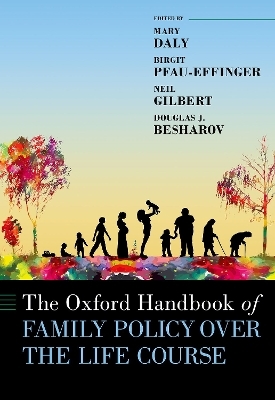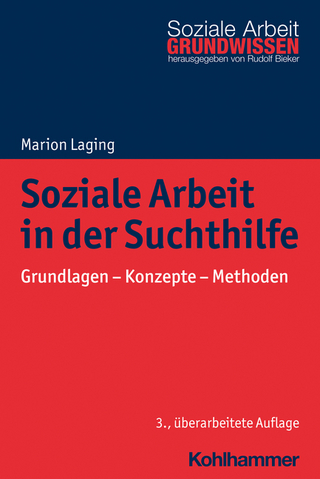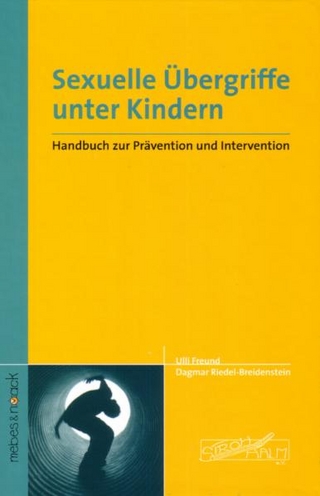
The Oxford Handbook of Family Policy Over The Life Course
Oxford University Press Inc (Verlag)
978-0-19-751815-1 (ISBN)
Mary Daly is Professor of Sociology and Social Policy at the Department and a Fellow of Green Templeton College, University of Oxford. She is an elected fellow of the British Academy and is also a Fellow of the Academy of the Social Sciences and a Member of the Royal Irish Academy. An expert in comparative welfare state studies, she has published many books and articles on topics such as gender and social policy, family policy, child wellbeing, long-term care, poverty and welfare. She is a former editor of the journal Social Politics and an advisory board member of this and a number of other journals. Mary Daly's research has been supported by a wide range of funders, including the Economic and Social Research Council, the EU, Council of Europe, the ILO, UN, UN Women and UNICEF. She has served on numerous national and international advisory committees. She is the founder of the Care Initiative at Green Templeton College Oxford. Birgit Pfau-Effinger is Research Professor for Sociology of Cultural and Institutional Change at the University of Hamburg. She was visiting professor at Universities in Aalborg, Tampere and Barcelona, and she delivered the Friedlander Lecture at the University of California, Berkeley. She has published 19 books and numerous articles in leading international journals, like Advances in Climate Change Research, Agriculture and Human Values, American Behavioral Scientist, British Journal of Industrial Relations, British Journal of Sociology, Environment & Planning A, Journal of European Social Policy, Journal of Social Policy, and Work, Employment & Society, and numerous articles in edited volumes. Her article in Work, Employment and Society (WES) was distinguished in 2012 as "Favorite WES article of the last 25 years" by the BSA, the Editors of WES, and SAGE. She was (co-) leader of research projects of the EU and DFG, and of several international research programs, and she is member of the Board of ESPAnet. Neil Gilbert is Chernin Professor of Social Welfare at U.C. Berkeley. Gilbert was awarded two Senior Fulbright Research Fellowships to study European Social Policy at the London School of Economics, the National Institute of Social Work and the University of Stockholm. He has served as a visiting Professor at McGill University and Hamburg University and delivered the Sidney Ball Lecture at Oxford University. Gilbert was Acting Dean of Berkeley Social Welfare from 1994-96. He was Vice Chair and Chair of the Berkeley Senate Faculty's Graduate Council. His publications include 15 books and 18 edited volumes and over 140 articles that have appeared in The Wall Street Journal, The Public Interest, Society, Commentary, and leading academic journals. Several of his books have been translated into Chinese, Japanese, Korean, and Italian and widely reviewed in venues such as the New York Times, the New York Review of Books, The New Republic, the Wall Street Journal, and the Atlantic. He served on the Board of Trustees of the Head-Royce School and is chairman of the Board of Seneca Center. In 1987, he was awarded the University of Pittsburgh Bicentennial Medallion of Distinction. In 2000 he was voted Teacher of the Year at Berkeley Social Welfare. Douglas Besharov is a Professor of Public Policy and Director of the Welfare Reform Academy and its Center for International Policy Exchanges at the University of Maryland. Professor Besharov has served as President of the Association for Public Policy Analysis and Management (APPAM), and was the founding director of the U.S. National Center on Child Abuse and Neglect. His best-known book is Recognizing Child Abuse: A Guide for the Concerned, a book designed to help professionals and laypersons identify and report suspected child abuse. His other publications include more than twenty books and 250 articles. He has contributed to The Los Angeles Times, The New York Times, The Wall Street Journal, and The Washington Post.
Introduction: The Editors
Part I: Social Context and Conceptual/Theoretical Issues
Section 1: The Changing Context of Family Relations
Section editor: Neil Gilbert, University of California, Berkeley
Introduction to Section on Context of Family Relations
Neil Gilbert, University of California, Berkeley
(1) Change and Variety in Family Forms: Patterns in World History
Peter Stearns, George Mason University
(2) Family Change in the Context of Social Changes in Asia
Stuart Gietel-Basten, Hong Kong University of Science and Technology
(3) Changing families in Europe: Convergence or Divergence?
Manuela Naldini, University of Torino
(4) Family Change in the Context of Social Changes in the US
Nick Wolfinger, University of Utah
(5) Family Policies in Long-Term Perspective
Thomas Bahle, Mannheim University
Section 2: Theoretical Issues
Section editor: Birgit Pfau-Effinger, University of Hamburg
Introduction to Section on Theoretical Issues
Birgit Pfau-Effinger, University of Hamburg
(6) Theorizing the Relationship Between the Family, Gender and the Welfare
State
Mary Daly, University of Oxford, UK
(7) Theorizing the Relationship between Policy and the Life Course
Martin Kohli, European University Institute, Florence
(8) Theorizing the Relationship between Intersectionality and Family Policy:
The Transnational Political Economy of Care
Fiona Williams, University of Leeds
(9) Understanding Family Policy Transformation in the Light of Critical Political Economy
Emanuele Ferragina, Sciences Po
(10) Theorizing the Role of Culture and Family Policy for Women's Employment Behavior
Birgit Pfau-Effinger, University of Hamburg
Section 3: Politics and Ideas in the Development of Family Policies
Section editor: Birgit Pfau-Effinger, University of Hamburg
Introduction to Section on Politics and Ideas in the Development of Family Policies
Birgit Pfau-Effinger, University of Hamburg
(11) The Role of Politics and Ideas in the Development of Work-Family Policies: The Case of the US
Patricia Boling, Purdue University
(12) The Politics of Ideas in Family Policy: Parties, Electoral Competition and Shifting Norms
Timo Fleckenstein and Samuel Mohun Himmelweit, London School of Economics and Political Sciences
(13) The Role of Religion for the Development of Work-Family Policies
Ito Peng and Alex Payette, University of Toronto
(14) The Role of the 'Social Investment' Concept for the Development of Family Policies
Chiara Saraceno, Collegio Carlo Alberto, Turin
(15) The Connection between Public Attitudes and Family Policy Regimes
Neil Gilbert, University of California, Berkeley, and Jing Guo, University of Hawaii
Part II: The Life Course and Family Policy
Section 4: Before/Instead of Marriage: Cohabitation
Section editors: Douglas Besharov, University of Maryland and Douglas Call, University of Maryland
Introduction to section on cohabitation
Douglas Call, University of Maryland and Douglas Besharov, University of Maryland
(16) Global Trends in Cohabitation
Nora Sánchez Gassen, Nordregio
(17) Cohabitation through the Life Course
Elizabeth Thomson, Stockholm University
(18) The Various Roles of Cohabitation in the US
Sharon Sassler, Cornell University and Alexandra Cooperstock, Cornell University
(19) Increasing cohabitation and decreasing marriage: Explanations
Nora Sánchez Gassen, Nordregio
(20) The Comparative Stability of Cohabitation Versus Marriage
Laurie DeRose, University of Maryland
(21) The Legal Framework of Cohabitation: Toward Greater Recognition>"
Margaret Ryznar, University of Indiana and Anna Stepien-Sporek, University of Gdansk
(22) Treat All Families Equally? Why Policies Should Adapt to Evolving Patterns of Cohabitation
Olivier Thevenon, Organisation for Economic Co-operation and Development and Antonela Miho, Paris School of Economics
Section 5: Family Policies and Starting a Family
Section editor: Neil Gilbert, University of California, Berkeley
Introduction to Section on Family Policies and Starting a Family
Neil Gilbert, University of California, Berkeley
(23) Social Investment in Early Childhood
Phyllis Jeroslow, University of California, Berkeley
(24) Childcare Policies and Fertility Considerations
Anna Cristina d'Addio, UNESCO
(25) Framing Reproductive Policy: IVF and the Religious Factor
Ronald Green, Dartmouth College
(26) Same Sex Unions and Childrearing
Sean Cahill, The Fenway Institute
(27) Raising Children in Stepfamilies: Policy Issues
J. Bart Stykes, Sam Houston State University
(28) Cross-border Marriages and Marriage Migration
Hélène Le Bail, Sciences Po, Institut Convergences Migrations, Paris
(29) Educating Parents: Critical Policy Issues
Claude Martin, CNRS
Section 6: Childcare-related Policies: The Preschool Years
Section editor: Mary Daly, University of Oxford
Introduction to Section on Child-related Policies: The Preschool Years
Mary Daly, University of Oxford
(30) Diversity of Childcare Policies in Nordic Welfare States
Ann-Zofie Duvander and Anita Nyberg, Stockholm University
(31) Parental Leave Policies and their Variations: Policy developments in OECD countries
Ivana Dobroti?, University of Zagreb
(32) Explaining Variations in Family Policy through a Gender Lens
Mary Daly, University of Oxford and Emanuele Ferragina, Sciences Po
(33) Social Policies for Lone Parents in Europe: A life course perspective
Hannah Zagel, Humboldt University, Berlin
(34) Childcare by Fathers in the Context of Active Father-oriented Policies
Guðný Björk Eydal, University of Iceland and Tine Rostgaard, Stockholm University
(35) The Matthew Effect in Early Childhood Education and Care: How family policies may amplify inequalities
Wim Van Lancker, University of Leuven
Section 7: Family Disruption
Section editor: Neil Gilbert, University of California, Berkeley
Introduction to Section on Family Disruption
Neil Gilbert, University of California, Berkeley
(36) Transition to Adulthood and the Emancipation Process
Antonio Lopez Pelaez, UNED, Spain and Amaya Erro-Garcés, Public University of Navarre
(37) Public Policy Towards the Removal of Children from the Family
Jill Berrick, Berkeley Social Welfare
(38) Principles of Public Policy for Child Protection: Cross-national Perspectives
Marit Skivenes, University of Bergen
(39) Varieties of Public Policy towards Domestic Violence Emily Sack, Roger Williams University
(40) Economic Resources After Divorce: Family Income and Housing in the Wake of Israel's Neo-Liberal Welfare Reform
Anat Herbst-Debby, Bar Ilan University of Tel Aviv
Amit Kaplan, TeAviv-Jaffa Academic College
Miri Endeweld, Israel National Insurance Institute
(41) Post-Separation Parenting Policies: Social and Legal Issues Around Parental Responsibility After Divorce and Separation Kirsten Scheiwe, University of Hildesheim
Section 8: Intergenerational Support
Section editors: Mary Daly, University of Oxford; and Birgit Pfau-Effinger, University of Hamburg
Introduction to Section on Intergenerational Support
Mary Daly, University of Oxford and Birgit Pfau-Effinger, University of Hamburg
(42) Family and State Responsibility for Care for Older People
Marco Arlotti, Polytechnic University of Milan, Emmanuele Pavolini, University of Macerata, Costanzo Ranci, Polytechnic University of Milan
(43) Unpacking the 'Elder-care Regime': The many faces of long-term care within and across societies
Lorraine Frisina Doetter, Johanna Fischer, and Heinz Rothgang, University of Bremen
(44) The Growth and Consequences of Quasi-markets in Long-term Care David Palomera and Margarita Léon, Universitat Autónoma de Barcelona
(45) Childcare by Grandparents in the Context of Welfare State Policies
Valeria Bordone, University of Vienna, Karsten Hank, University of Cologne, Cecilia Tomassini, University of Molise, Bruno Arpino, University of Florence
(46) Policies for Active Ageing and their Family-related Assumptions and Consequences
Myra Hamilton, University of Sydney, Virpi Timonen, Trinity College Dublin, Lyn Craig, University of Melbourne and Elizabeth Adamson, University of New South Wales
(47) Intergenerational Resource Transfers as the Cement of Society: The Asymmetric Role of Families and Policies
Pieter Vanhuysse, University of Southern Denmark and Róbert Iván Gál, Hungarian Demographic Research Institute
(48) Welfare State Policies towards Financial Solidarity between Generations
Patricia Frericks, University of Kassel
| Erscheinungsdatum | 18.02.2023 |
|---|---|
| Verlagsort | New York |
| Sprache | englisch |
| Maße | 257 x 187 mm |
| Gewicht | 2050 g |
| Themenwelt | Sozialwissenschaften ► Pädagogik ► Sozialpädagogik |
| Sozialwissenschaften ► Soziologie ► Mikrosoziologie | |
| ISBN-10 | 0-19-751815-X / 019751815X |
| ISBN-13 | 978-0-19-751815-1 / 9780197518151 |
| Zustand | Neuware |
| Informationen gemäß Produktsicherheitsverordnung (GPSR) | |
| Haben Sie eine Frage zum Produkt? |
aus dem Bereich


